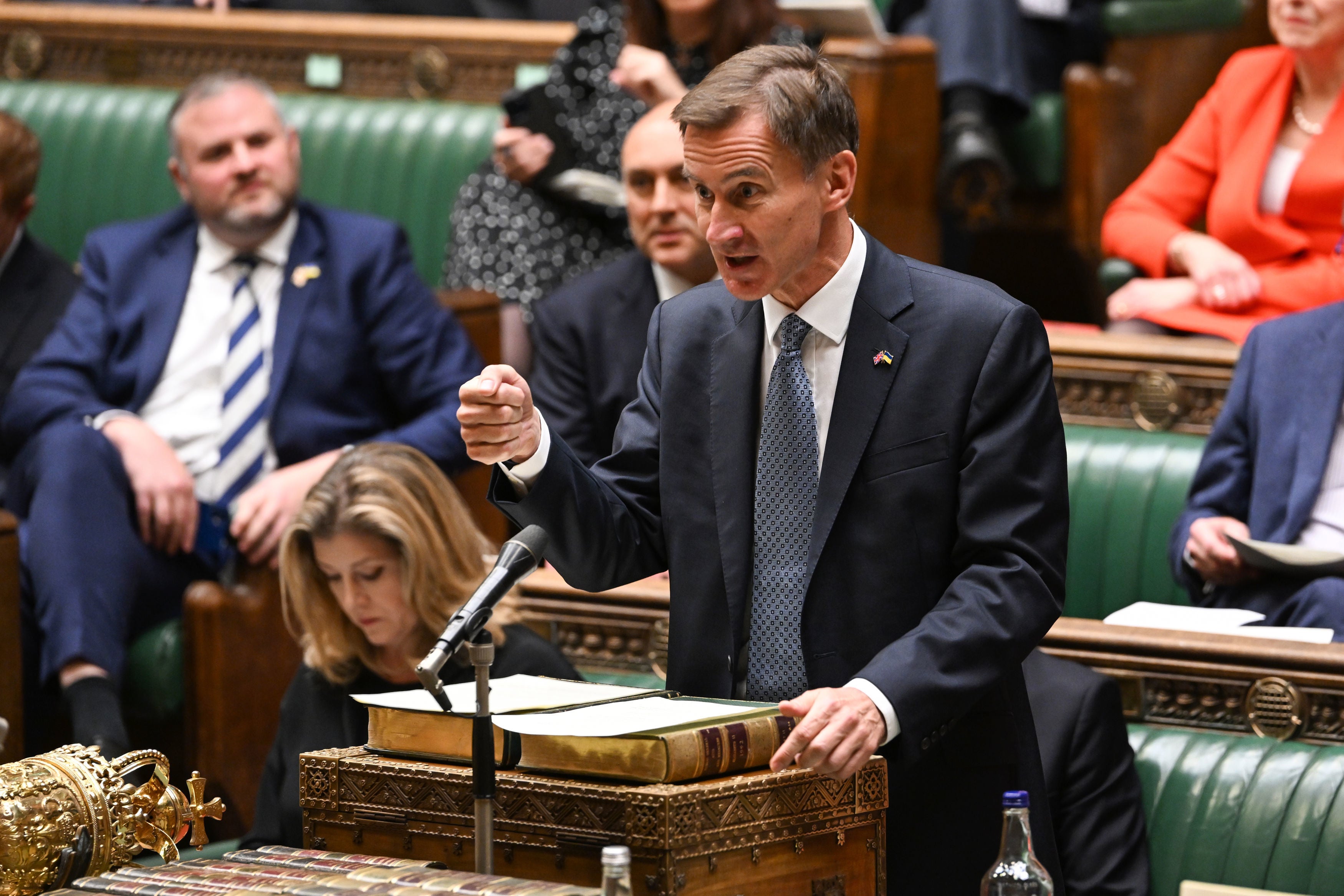Labour should be applauding Jeremy Hunt’s autumn Budget
The Tories have done the right thing, but they’ll get no reward for it, writes John Rentoul


Rachel Reeves, in her response to the autumn statement, accused the chancellor of playing politics “by attempting to lay so-called traps for the Labour Party”. That was a strange way of saying that the Conservatives were doing what Labour would have done if it had been in power.
The main “trap” is the postponement of deep cuts in public spending until after the next election. That means that Labour will find it hard to promise public sector largesse at the election because the Tories and journalists will ask: “Where will the money come from?”
But that is just as much a trap for the government, which is proposing to go into the election promising what is bound to be labelled “austerity”. Not only that, but there are still some tax rises to come: Jeremy Hunt announced that the cut in stamp duty will be reversed in 2025. As an election-winning message, “vote for austerity and tax rises” lacks an obvious appeal.
Perhaps Reeves regards people asking her what Labour would do instead as a trap, but you would have thought that answering that question was the job of a party presenting itself as an alternative government.
The only reason “what would you do?” is a trap is that the government has already done it. Reeves and Keir Starmer have talked about those with the broadest shoulders bearing the greatest burden, but it is Hunt and Rishi Sunak who want to extend the top rate of income tax to everyone earning more than £125,000 a year. That brings in a surprisingly small sum of money – less than £1bn a year after five years – but it is the kind of tax fairness of which Labour supporters approve, even if Reeves and Starmer never advocated it, for fear of being accused of being the high-tax party.
And Labour called for an extension of the windfall tax on energy companies, an extension which Hunt announced today. Labour can always say that the government should raise even more, but the policy is less useful to them now as a source of notional revenue to pay for election promises.
Hunt’s framing of the autumn statement as “honest” and “fair” makes it hard for Labour to criticise it, although Reeves did a good job in the Commons. The most striking charts in the Treasury documents are those showing that the effects of all the measures announced today take from the rich and give to the poor.
Those are the kinds of charts that were disdained by Liz Truss before her brief premiership, when she said it was time for the Tory party to stop obsessing about the distributional effects of government policies. Labour can accuse the Tories of incoherence and contradicting themselves, but the government has ended up demanding a bigger sacrifice from the better-off than from the poor, which is what Labour wanted.
We wouldn’t expect Reeves to have congratulated Hunt in presenting what was in effect a Labour Budget. Many of Hunt’s themes were familiar from the New Labour era: especially his closing line that “you don’t need to choose either a strong economy or good public services”. He even announced that Sir Michael Barber, Tony Blair’s guru of public service reform delivery, and Patricia Hewitt, the New Labour health secretary, would be advising the government in its search for “Scandinavian quality alongside Singaporean efficiency” in the public sector.
Instead, Reeves concentrated on Labour’s plan to abolish tax breaks for non-doms, which is a mainly symbolic policy that the last Labour government thought would be counterproductive.
To keep up to speed with all the latest opinions and comment, sign up to our free weekly Voices Dispatches newsletter by clicking here
She could hardly admit that Hunt had broadly done the right things, but she didn’t need to. The brutal reality of politics is that no matter how “fairly” the coming pain is distributed, the squeeze in living standards is so big that it would be hard for any government to survive the consequences.
It doesn’t matter, as Hunt tried to say in his statement, that people wanted the furlough and business support during coronavirus, or that people wanted the government to protect them from gas and electricity bills going through the roof. It doesn’t even matter that many voters do say in focus groups that they recognise that, as Hunt put it, these things “all have to be paid for”.
When it comes to presenting the bill, there will be many voters who don’t want to know. Hunt may have done what Labour was calling for and what the voters say they accept is necessary, but Labour and the voters will still vote against it.
Hunt and Sunak have even done what Conservative MPs accept was necessary, which puts the Tory party in a better position to fight the next election than it would have been under either Truss or Boris Johnson. But the Tories are still not in a good position.
Sometimes there is a shift in the tectonic plates of politics and there is little that individual politicians can do about it.
Join our commenting forum
Join thought-provoking conversations, follow other Independent readers and see their replies
Comments
Bookmark popover
Removed from bookmarks